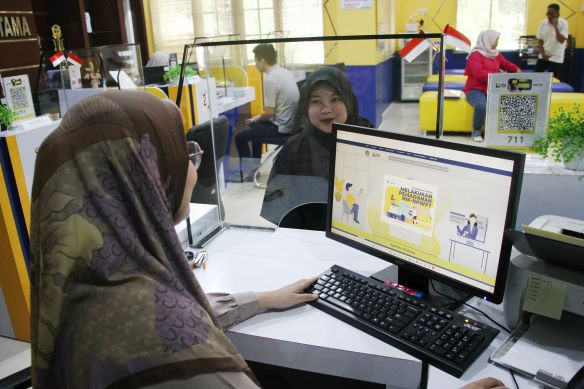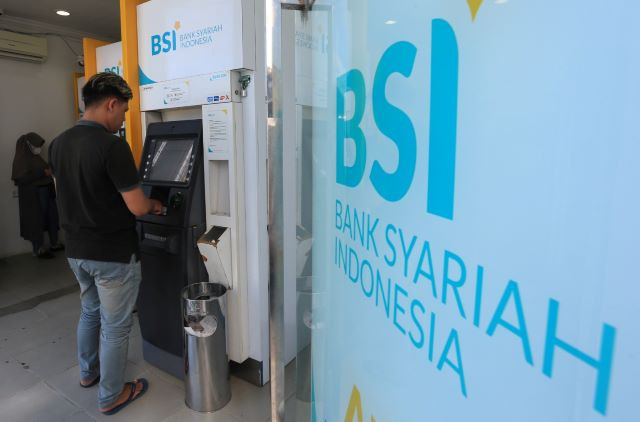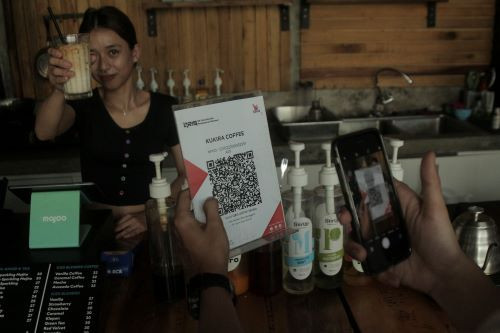Hopes of ending graft lie in presidential support
The global corruption perception index (CPI) of 2017 showed no progress was made in Indonesia.
Change Size
 People write notes containing their hopes for the country’s corruption fight during an event held to mark International Anticorruption Day in Malang, East Java. (The Jakarta Post/Aman Rochman)
People write notes containing their hopes for the country’s corruption fight during an event held to mark International Anticorruption Day in Malang, East Java. (The Jakarta Post/Aman Rochman)
T
he global corruption perception index (CPI) of 2017 showed no progress was made in Indonesia. Indicating the successful outcome of President Joko “Jokowi” Widodo’s first three years in power, the CPI rating of global watchdog Transparency International (TI) had increased from 34 in 2014 to 37 in 2016. However, in 2017, Indonesia still had the same score of 37. This stagnancy suggests that the absence of a substantive policy to curb judicial and political corruption — the former meaning corruption involving law enforcement agencies and the latter involving political elites.
Based on the recent presidential debate and official documents of both candidates — the incumbent Jokowi and opponent Prabowo Subianto — what can people expect from the next elected president in the fight against corruption? Let us first check the current progress and challenges in the campaign against graft.
The annual CPI is a composite index from several global surveys on corruption. CPI 2017 reflected two important perspectives on corruption — economic and legal. From the economic point of view, the TI calculates CPI ratings from the World Economic Forum and “Ease of Doing Business”, among others. From a legal aspect, the TI relies on the “Rule of Law Index”, published by the World Justice Project.
Despite global perceptions of Indonesia having a lackluster approach in curbing graft, the economic surveys score increasing government performance in providing a better investment climate by simplifying procedures, improving government services and reducing corruption. Jokowi’s reforms have contributed to this achievement.
However, the legal perspective shows a decreasing score in law and justice, hampering people’s access to justice and protection of business interests. The decreasing score in law enforcement and other indicators related to political corruption reflects the President’s inability to control judicial and political corruption. Although the executive branch lacks absolute authority over the judicial and political institutions, Jokowi could still help curb such entrenched corruption.
For instance, to decrease political corruption, he could increase state subsidies for political parties and candidates to prevent politicians targeting state resources for political funding.
Unfortunately, there has been no evident progress in this issue. The continued success of the Corruption Eradication Commission (KPK) in arresting several regents, mayors and governors, as well as lawmakers, signals the absence of the President’s policy to address political corruption. If Jokowi had a clear strategy to control political corruption, the KPK would not arrest so many perpetrators.
In the judiciary sphere, the President is the supervisor of the Attorney General’s Office (AGO) and the National Police chief. In the case of the acid attack against senior KPK investigator Novel Baswedan, the President’s inability to speed up investigations is all too clear to the public. After two years, the police have not solved the case.
In law enforcement against corruption, the AGO is also authorized to investigate corruption cases. However, the public only knows about the success of the KPK in exposing public officials’ corruption through its sting operations. Less information is available from the AGO on what corruption cases they have investigated and their results.
Jokowi’s failure to curb judicial corruption enables those institutions to sustain and strengthen their corrupt patronage network. The absence of a strong direction and visible firmness from the President allows for continued threats and acts of terror against the KPK and its investigators, including the recent bombing attempts against two KPK commissioners at their private residences.
Official documents of the presidential candidates on their respective vision and mission statements and programs, and the first presidential candidates’ debate, show their clear anticorruption programs.
Among others, Jokowi promises to continue his corruption prevention program by implementing a merit system in the bureaucracy and political appointments. His primary approach is to continue his National Strategy of Corruption Prevention.
Unfortunately, the programs pay no special attention to judicial and political corruption. This means Jokowi will still focus on bureaucracy reform and corruption prevention in business licenses. This is good news for investors but bad news for the public because judicial and political corruption will inhibit any corruption eradication effort.
His contender, Prabowo, pledges to raise the salaries of civil servants and law enforcement officials to prevent them from accepting bribes. The retired military officer thus simplifies corruption as bribery and proposes to increase salaries. Numerous cases, however, show that this approach is ineffective. Corruption is a complex problem with no single magic bullet to address it. Some government bodies such as the Finance Ministry and the Supreme Court have already increased their officials’ wages, yet corruption remains rampant.
Although both candidates promise to support the KPK, they do not clarify this particular support. The most important is presidential political support, especially when the KPK investigates corruption involving the political elite. The lesson from the recurring conflict between the KPK and police is that law enforcement officials could engineer cases against KPK commissioners to prevent them from investigating the political elite. After the KPK named several high-ranking police officers as graft suspects, in retaliation the police investigated KPK commissioners in 2009 and 2015 that almost paralyzed the anticorruption agency. Unfortunately, neither candidate mentioned presidential support for the KPK during the debate and in their official programs.
Therefore, what can the public expect from both candidates? Without a fundamental policy to eradicate corruption, Indonesian‘s highly fragmented politics forces the candidates to build a broad-based coalition based on patronage, especially access to public resources. This structural condition will prevent any elected president from implementing a radical policy to eradicate corruption.
Presumably, the best option for people is therefore a leader who is perceived to be able to control corruption in a particular sector and make gradual improvements, for instance to control corruption in the judiciary. If the President can control corruption in the police and prosecutor’s office, KPK commissioners and its staff will not have to fear being criminalized when they investigate corruption among the political elite.
***
The writer is a research fellow at Transparency International Indonesia.










